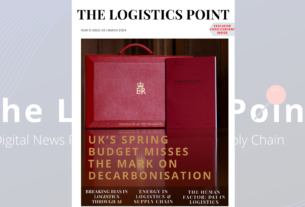The transport sector accounts for more than a third (34%) of Britain’s total carbon dioxide (CO2) emissions. This has put it in the forefront of the NetZero targets and organisations of all sizes are rushing to prove which one is the most environmentally friendly. The recent announcement by the PM Rishi Sunak that the ban on sales of new petrol and diesel cars has been delayed has once again put the focus on how transport will decarbonise.

The conversation has now become highly politicised and it is likely that the biggest loser will be the effort to clean the environment and create a more sustainable future. Some are hailing it as “pragmatic”, others – from the automotive industry and beyond – have been extremely critical of the move.
The PM himself acknowledged that reaching NetZero by 2050 will need change but how prepared are politicians, businesses and the society as a whole to change on time? ‘We all believe that the more we can do to protect our planet for the next generation the better. Net Zero is an ambitious target but, with every step towards the target, we make positive progress,’ says Chris Higgins, Commercial Director at AFS Global.
Shipping insight
Comment by Chris Higgins, Commercial Director at AFS Global
‘The global shipping market, via either sea or air, is one of the major industries to contribute significant CO2 emissions. The challenge that the industry faces is the scale of operations and the viable alternatives to the way that we already move cargo around the world. Carriers have already adopted lower sulphur fuels and fitted scrubbers to vessels in a bid to reduce their environmental impact. But with the size of the vessel, the weight of the cargo and the distance that these vessels/aircraft travel, there are currently few alternatives. An increasing number of customers enquire about more environmentally sensitive methods to ship their goods and also trying to understand their current carbon impact.

His sentiment is shared across the board. Some, however, think that the government has not done a good job when it comes to communication and sticking to the plan. ‘To transition at pace, the industry needs the right policy framework and long-term certainty from government, as well as confidence the infrastructure and energy to support alternatively fuelled vehicles will be developed in time,’ explains Michelle Gardner, Logistics UK’s Deputy Director of Policy.
Michelle looks at something that many of the critics point at. How sure can the industry be that regulations and policies won’t keep changing? Afterall what every business needs is certainty and continuity. Business bodies are worried and want to find what more changes are being planned and discussed. Would there be more? The answer is unknown and this is what creates the biggest problem.

Supporting a pragmatic approach
Others are less critical, not because they are against the ban as a whole, but because they feel the new date of 2035 should have been the original commitment.
Crucially, it brings us into line with other major nations and it is important to recognise that the UK, while a substantial vehicle market, represents less than 3% of the global production volume. What we do politically has a limited effect on manufacturer plans internationally,’ says Philip Nothard, Chair, The Vehicle Remarketing Association (VRA) .
But isn’t the UK proud to be a world’s leader despite limited chances of success?
Supporters say that while significant, the recent announcement may not substantially impact the UK’s 2050 NetZero targets. At the same time, they agree with the critics: confusion will reign unless clearer announcements are made.
A key danger is that it could introduce confusion and uncertainty into the strategic approach to the transition to EVs. Whether this is the case will largely depend on complementary measures, particularly changes to the Zero Emission Vehicle Mandate. These must be carefully and effectively managed.

Smoother transition
While the delay may introduce some short-term uncertainties, it also offers an opportunity for a smoother and more coordinated transition to EVs if managed effectively. If it is executed in such a way that it maintains investments in infrastructure, research and development, as well as business support for the transition to EVs, it could ultimately have a positive impact. The critical factor is establishing that deadline as a point towards which all stakeholders in the automotive industry can work toward.
‘For some businesses the ban delay may prove helpful, buying them a little more time to allow for vehicle and charging technology advances and for them to hone their transition strategies,’ explains Richard Parker Webfleet UK&I EV Consultant, Bridgestone Mobility Solutions.

To accelerate the transition, a spirit of collaboration is called for – mutual learning and a collective green vision. For fleets, there is not only a clear environmental motivator for decarbonisation, but also a powerful business case. Decarbonisation can boost a business’s reputation, while offering long-term cost saving benefits.
ZEV Mandate
Comment by Barney Goffer, UK Product Manager at Teletrac Navman UK
This mandate provides deadlines that the industry was missing, offers a feasible plan to meet the government’s 2035 carbon net zero target, and gives fleets more opportunity to commence their transition. In theory, it should bring more alternatively fuelled vehicles into the market at better price points and for fleets already experiencing supply chain issues for ICE vehicles this should hopefully be welcomed. It provides the fleet industry with the clarity it’s been lacking to better plan its decarbonisation journey and transition towards full ZEV switchover.
Holistic approach
The logistics industry remains focussed on the steps it must take during this journey, and what can be done today, such as adopting low carbon fuels already available, that can reduce emissions immediately. In moving towards the essential 2050 target, it’s key that the strategies and policies employed are holistic and inclusive, and consider both new and used vehicle markets to ensure a smooth and effective transition. One pressing issue in the UK is the existence of a two-tier market, where new EV customers enjoy tax benefits while little or no support is extended to used EV buyers. ‘This disparity hinders the adoption of EVs for everyone and should be examined,’ claims Philip Nothard. *


